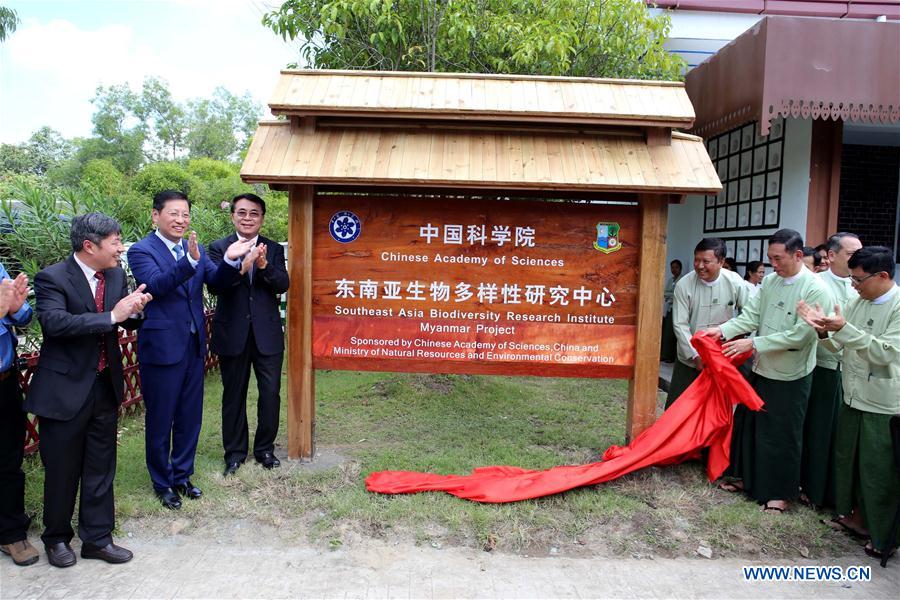
Bai Chunli (3rd L), President of the Chinese Academy of Sciences (CAS), and other guests attend the unveiling ceremony of Southeast Asia Biodiversity Research Institute, Chinese Academy of Sciences Myanmar Project, in Nay Pyi Taw, Myanmar, on Oct. 12, 2016. (Xinhua/U Aung)
NAY PYI TAW, Oct. 14 (Xinhua) -- A Southeast Asia Biodiversity Research Institute (SABRI), established by China and Myanmar, has been unveiled in Nay Pyi Taw.
The SABRI, unveiled on Wednesday, was jointly established by the Chinese Academy of Science (CAS) and the Myanmar Ministry of Natural Resources and Environmental Conservation.
The SABRI project, which had been implemented since 2013 under a bilateral MoU, includes four labs for research on animal activities, biodiversity, aqua-biodiversity, traditional medicines, human and plant species.
It aims to enable international research on biodiversity and science among the countries along the Belt and Road and in Southeast Asia, based on the China-Myanmar cooperation.
U Khin Maung Yee, permanent secretary for the ministry of natural resources and environmental conservation of Myanmar, expressed his belief that SABRI will provide opportunities for the Myanmar counterpart to improve their capacities.
The SABRI will serve as a powerful international platform for collaborative research and discovery, training the youths from Southeast Asia who are outstanding at science and technology and conducting Master and PhD courses.
URL: http://news.xinhuanet.com/english/2016-10/14/c_135753694.htm

